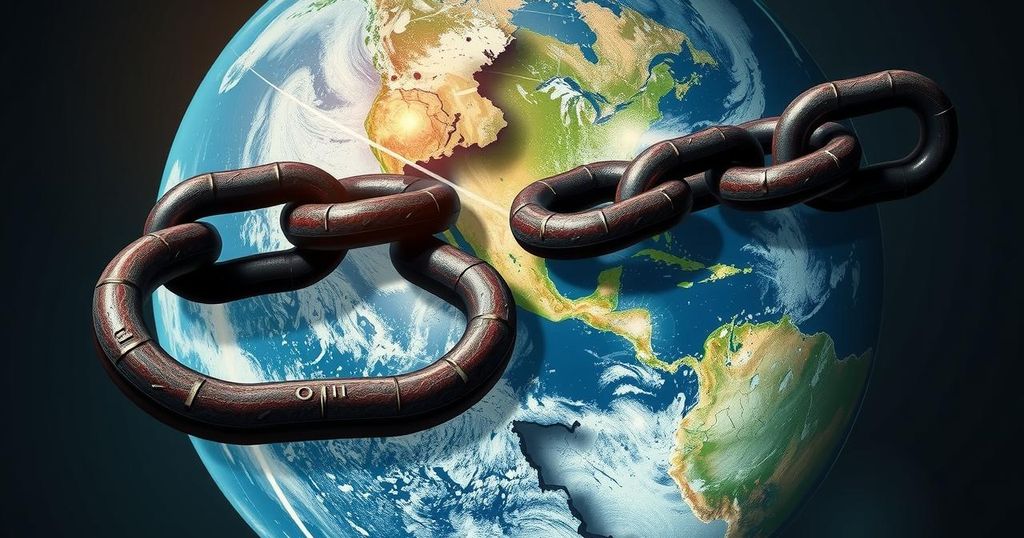World news
AFRICA, ALGERIA, ASIA, COMMITTEE, CURRENT EVENTS, DEMOCRATIC REPUBLIC OF THE CONGO, DONALD TUSK, EU, EUROPE, EUROPEAN COMMISSION, EUROPEAN PARLIAMENT, EUROPEAN UNION, EUROPEANSTING, HARRY, HUMAN RIGHTS, INTERNATIONAL RELATIONS, IRAN, IST, NICOLAS MADURO, UKRAINE, US, VON DER LEYEN, WAR
Elena Martinez
0 Comments
EU Parliament’s Recent Resolutions on Human Rights and Democracy Challenges
The European Parliament adopted three resolutions on human rights violations in the Democratic Republic of the Congo, Iran, and Algeria. MEPs denounced Nicolas Maduro’s presidency and the sham elections in Belarus. The Parliament condemned Russia’s historical distortions regarding Ukraine and discussed Poland’s EU Council presidency strategies, emphasizing security. It also reaffirmed support for a ceasefire in Gaza.
On Thursday, the European Parliament passed three resolutions addressing human rights violations in the Democratic Republic of the Congo, Iran, and Algeria. These resolutions emphasize the necessity for the EU to uphold and advocate for human rights across these nations. Furthermore, the resolutions highlight ongoing concerns regarding political repression and fundamental freedoms, urging immediate actions from relevant authorities to restore and protect human rights practices in these areas.
In addition to human rights discussions, the European Parliament addressed the illegitimacy of Nicolas Maduro’s presidency, characterizing it as an unlawful attempt to cling to power through coercion. MEPs voiced their strong disapproval of the forthcoming presidential elections in Belarus, declaring them a sham. These actions underscore the Parliament’s commitment to democratic integrity and regional stability.
Moreover, MEPs condemned Russia’s systematic historical distortions used to justify its aggression in Ukraine. They urged the global community to respond decisively to these misrepresentations. Concurrently, discussions were held regarding Poland’s EU Council presidency, with a focus on security and strategic objectives outlined by Donald Tusk.
The Parliament’s leadership also expressed solidarity regarding the ceasefire in Gaza, reflecting on global peace initiatives. These statements and resolutions illustrate the EU’s proactive stance on international issues, asserting the importance of diplomacy, human rights, and democratic processes.
The European Parliament plays a critical role in shaping EU foreign policy and advocating for human rights across nations. Recent resolutions indicate a focused effort to challenge authoritarian regimes and support democratic governance. The discussions also cover broader geopolitical issues, including the need for transparency and historical accuracy in political discourses, particularly regarding conflicts in Ukraine and Belarus. The Democratic Republic of the Congo has faced persistent human rights challenges, drawing increasing international scrutiny. The resolutions signify a collective commitment to address these challenges and hold violators accountable. The emphasis on various countries highlights the EU’s strategic importance in promoting human rights on a global scale.
In conclusion, the European Parliament has reaffirmed its commitment to upholding human rights and democratic values through recent resolutions. By addressing the ongoing human rights abuses in the Democratic Republic of the Congo, Iran, and Algeria, as well as denouncing illegitimate regimes in Belarus and Venezuela, the EU emphasizes its dedication to fostering justice and stability. These actions represent a call to the international community to collectively stand against oppression and promote a peaceful dialogue.
Original Source: europeansting.com




Post Comment